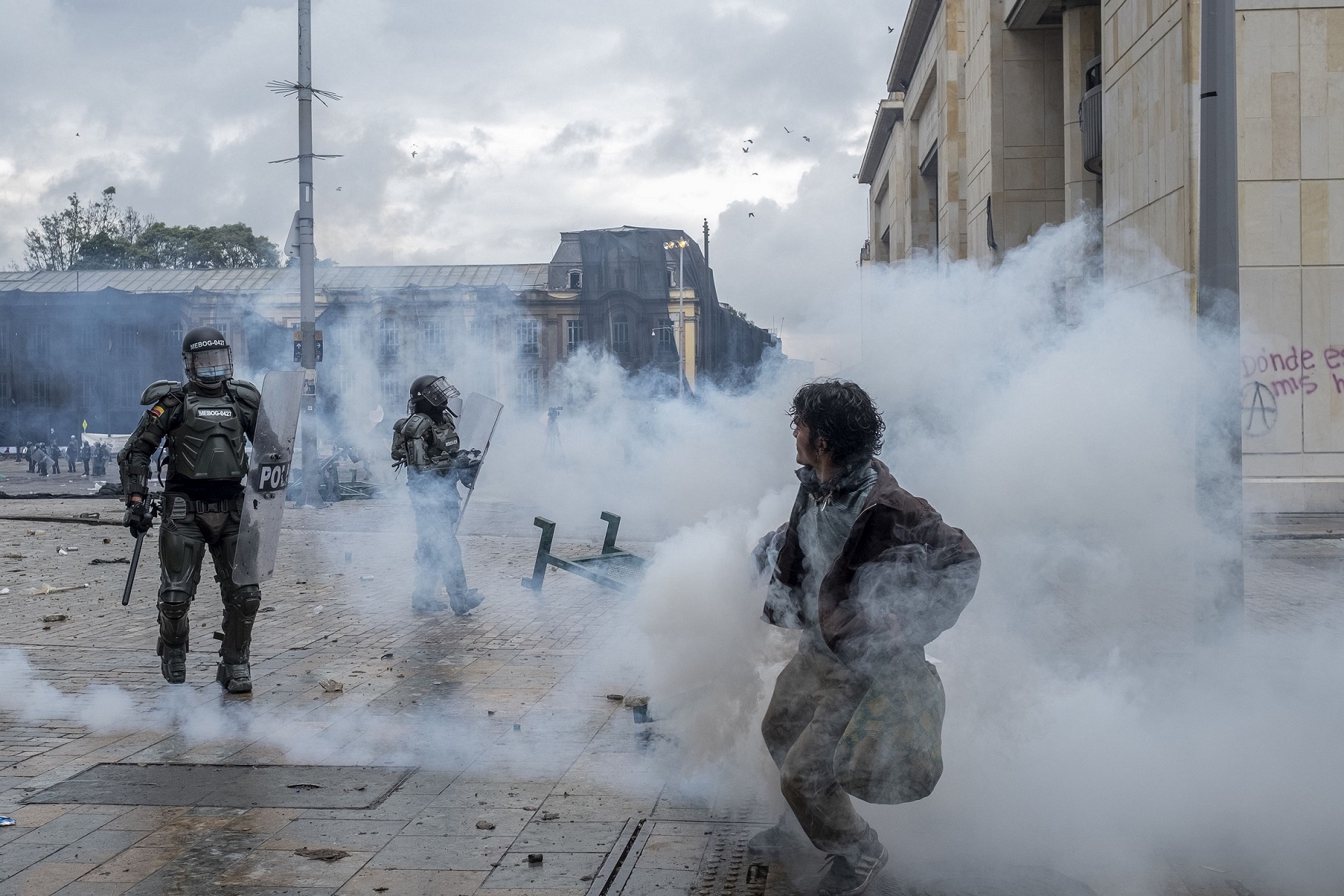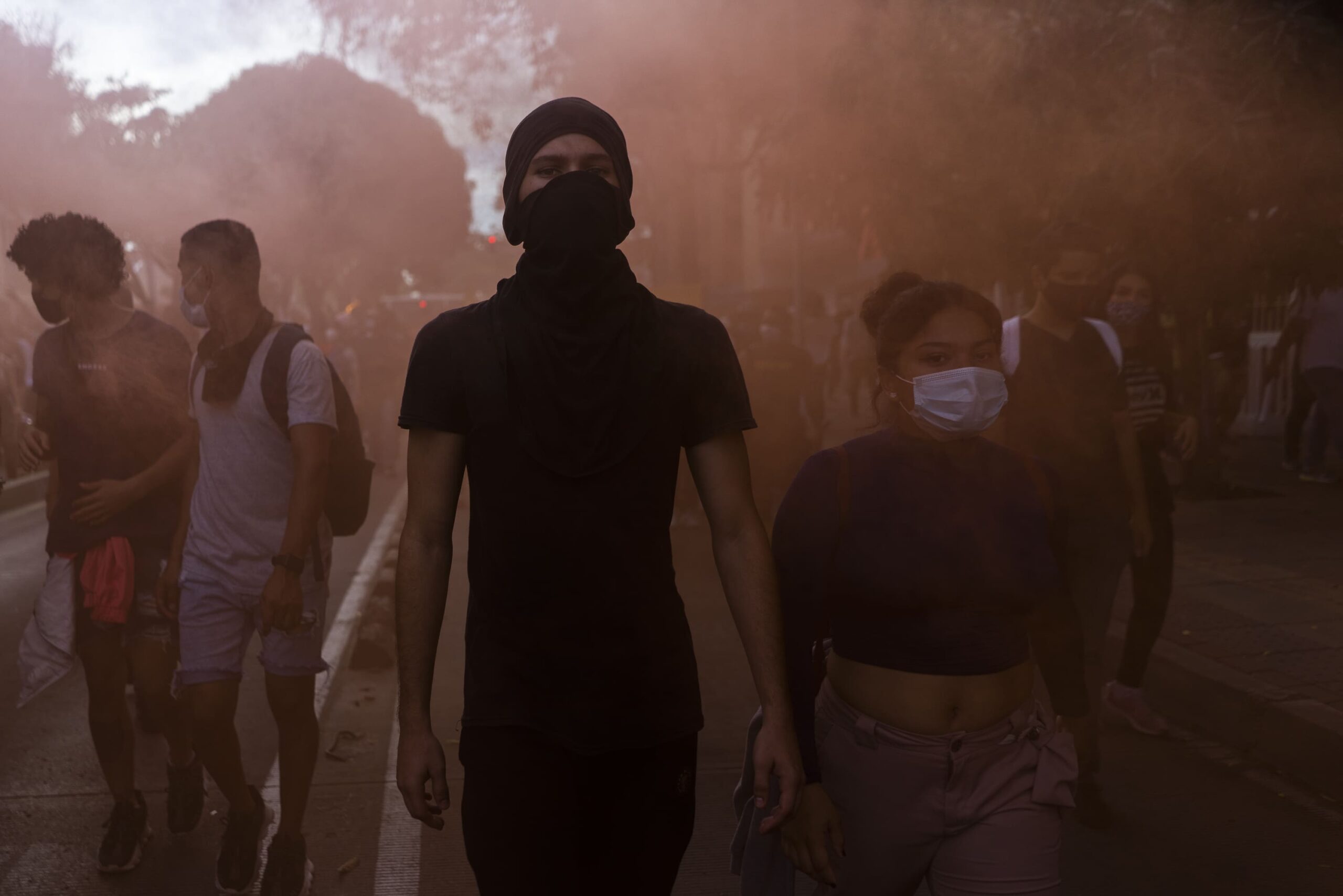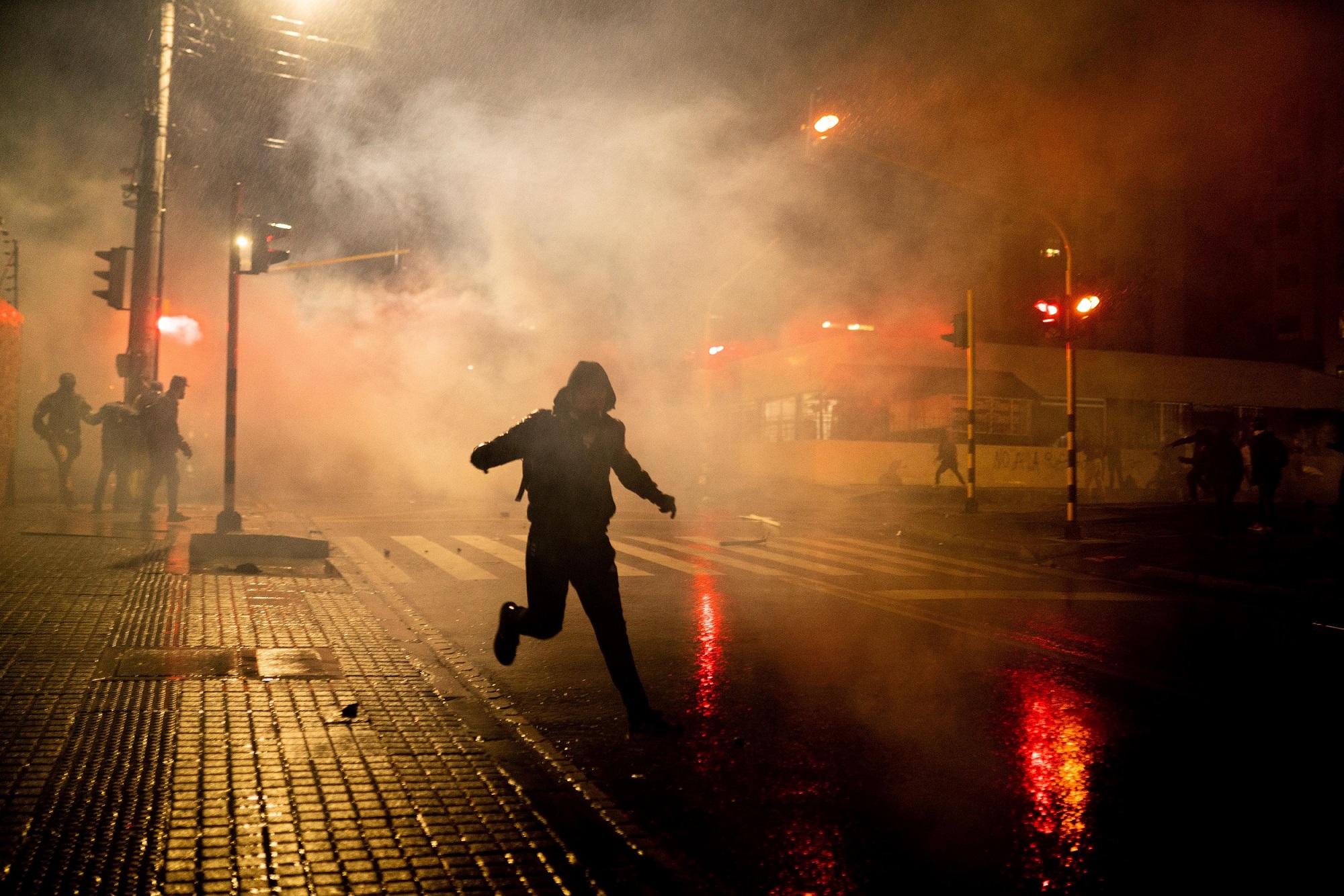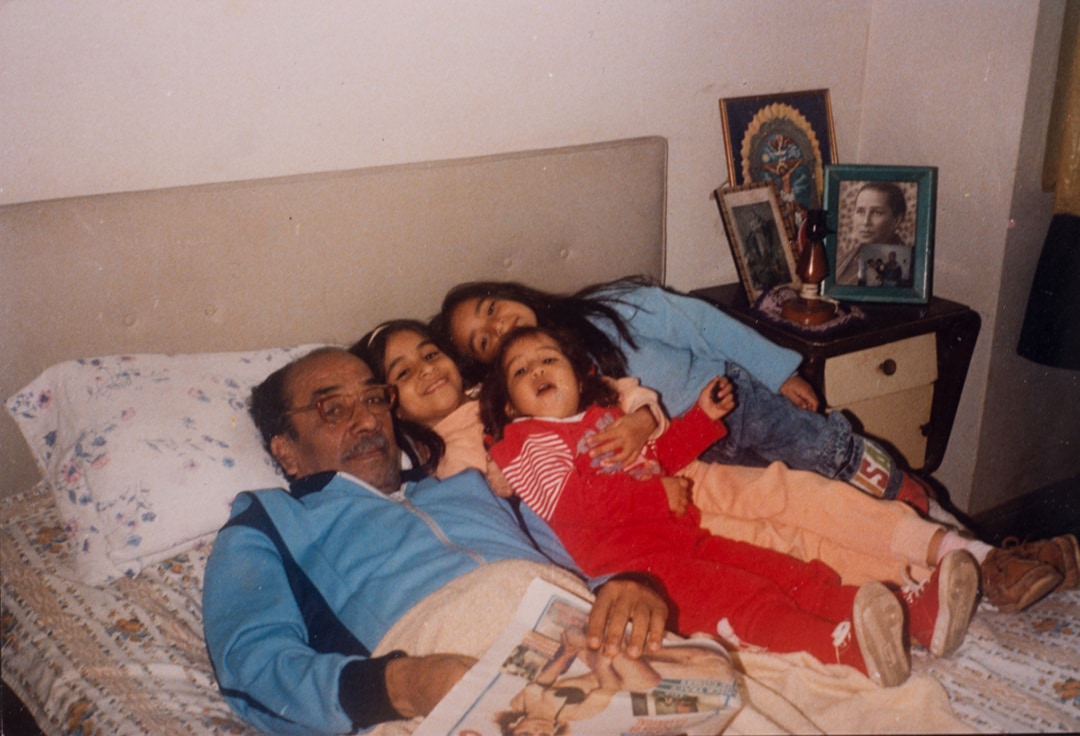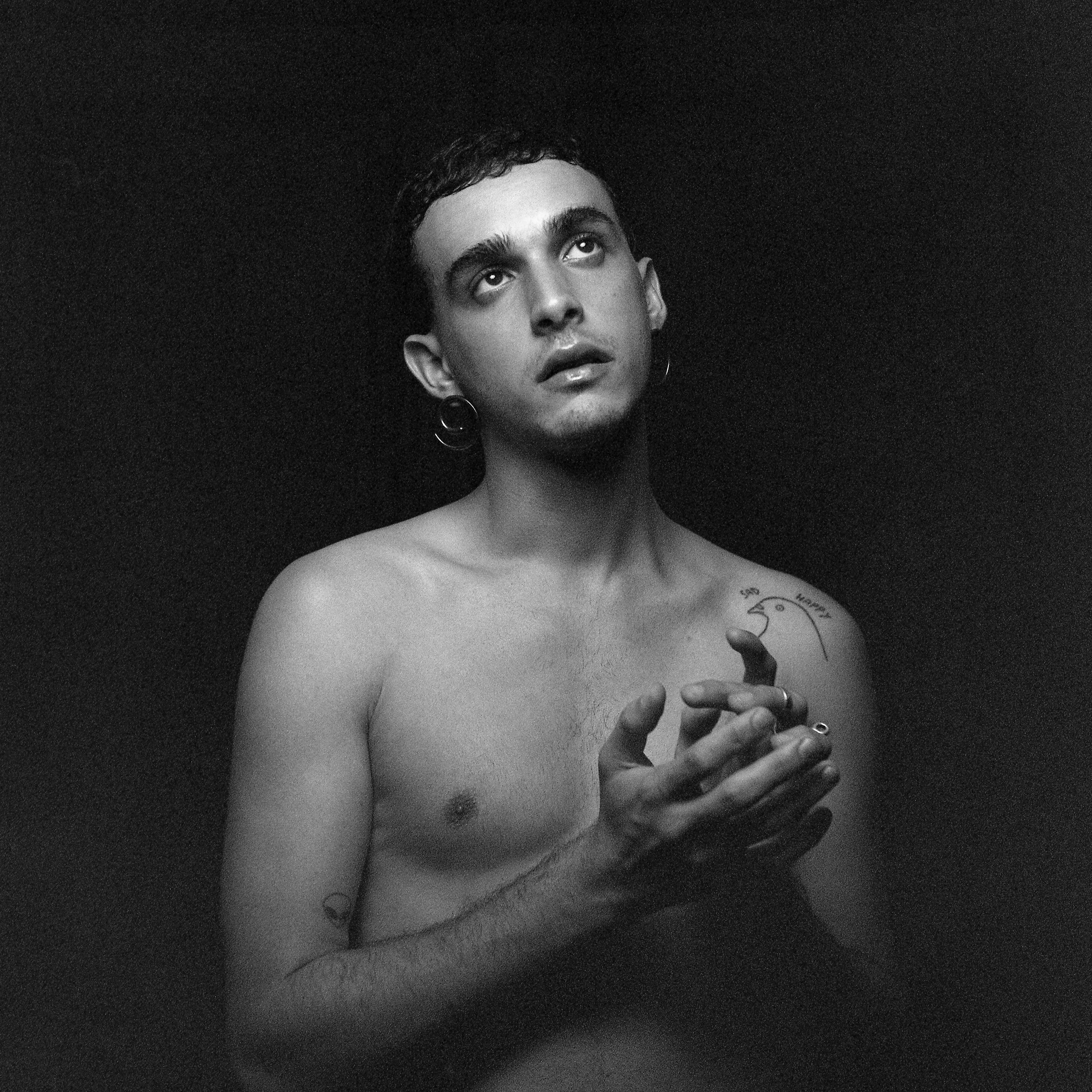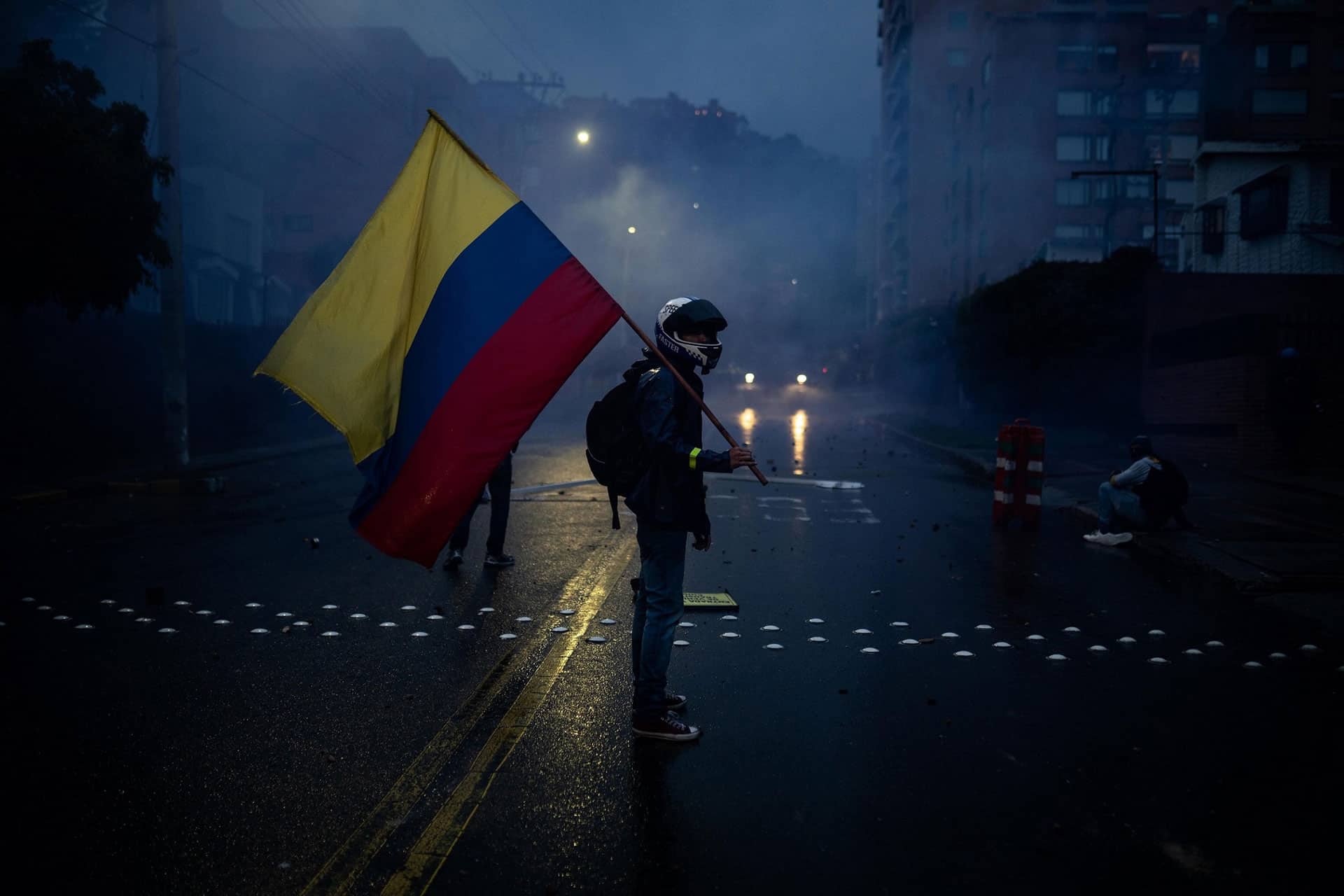
Colombia: the Record of a Historical Outbreak in Real Time
On Monday, May 3, and amidst strong protests in Colombia, photographers Andrés Cardona and Paula Thomas from Reojo Colectivo spoke on a IG live with Gisela Volá, in one of the Collective Dialogues sessions. Much of the conversation revolved around the political and social situation in Colombia and the role of groups like this one.
The protest began by demanding that the government of Iván Duque withdraw the tax reform that he had proposed a few days before. In the midst of a pandemic that deepened the levels of inequality and poverty throughout the country, the president proposed an expansion of the collection of income taxes and levying VAT on the products of the basic family basket and public services, in addition to collecting taxes from cultural sectors such as editorial or audiovisual.
The response was the militarization of the cities, and persecution and repression of the demonstrations. So far, more than 31 deaths have been counted and the protest and the strike continue. The government intends to carry out a health reform, a pension reform and has so far refused to implement the peace accords.
Andrés Cardona is in Caquetá, south of Colombia and moves in the Amazon region. Charly Cordero is in Barranquilla and covers the Caribbean region. Santiago Mesa is in Medellín. Paula Thomas and Andrés Bo are in Bogotá. They met and met in the framework of the 20 Photographers Mexico camp, organized by the +1 collective. They formed Reojo Colectivo and a year later they invited one more photographer to be part of it.
They say they got together “out of a basic need to build, because Colombian photography has been a bit relegated.” Their intention is to create new narratives. “We are always thinking of approaching issues from another perspective and leaving the traditional frame of the image, exploring different things to build new stories,” says Andrés Cardona.
Paula Thomas defines it as a “gathering of friends and colleagues”. Together they have realized that there is no single way to count the country. In the collective work they have found ways to put their different aesthetics and ways of doing in dialogue.
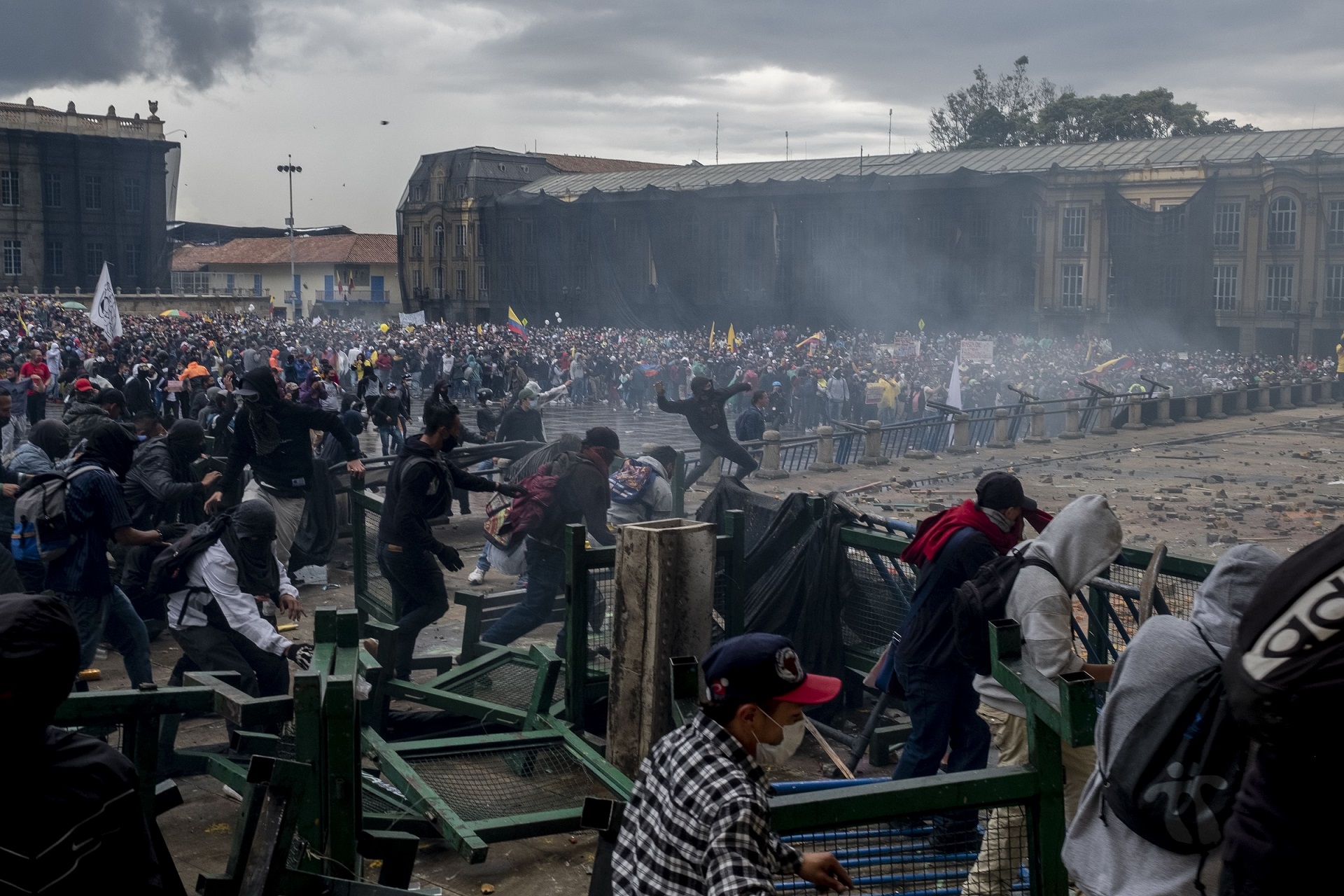
We did not have in mind that we were going to have a context like the one that is being lived in Colombia.
Paula Thomas: It seems very appropriate that this meeting took place at this moment in our country. At this time we have met based on what is happening with respect to the national strike that was called this April 28, within the context of the Government’s proposal for a tax reform in the midst of a pandemic and in the midst of a very bad management of the pandemic. All this has brought social discontent that had already been coming since 2019, but which was appeased by the pandemic. Despite that, we are a people that have resisted a lot and no longer endured. So it was summoned to go out on the street. To us as creators of images and also as photographers who are covering the situation from different territories of Colombia, it also brings us together to be able to tell and have a vision of what is happening at this moment.
Andrés Cardona: To begin with, let’s say one of the things that is most talked about in the street at this time is that if someone goes out to protest in the middle of a pandemic, it is because the government is more dangerous than the virus. The outrage is not only in important cities in Colombia, but it is reaching the smallest and most remote towns that the country has. There is general outrage at various things. Tax reform is the first point, and they have already withdrawn it from the Senate. But people want to continue because there are other things that follow. We as a collective are covering what is happening from where we are. Charly is in Barranquilla and has gone every day to see how the protest is developing there. Santiago is in Medellín. I have some things to do in Bogotá, so I’m covering here. Just like Paula and Andrés Bo.
We talk constantly and all the time we are wondering what is happening? How is the subject evolving? Where can we go? And what are we going to do with what we are producing? We are going to make a video and invite some other photographers to join us in taking something that can be massively moved. The issue of Colombia lacks a lot of visibility.
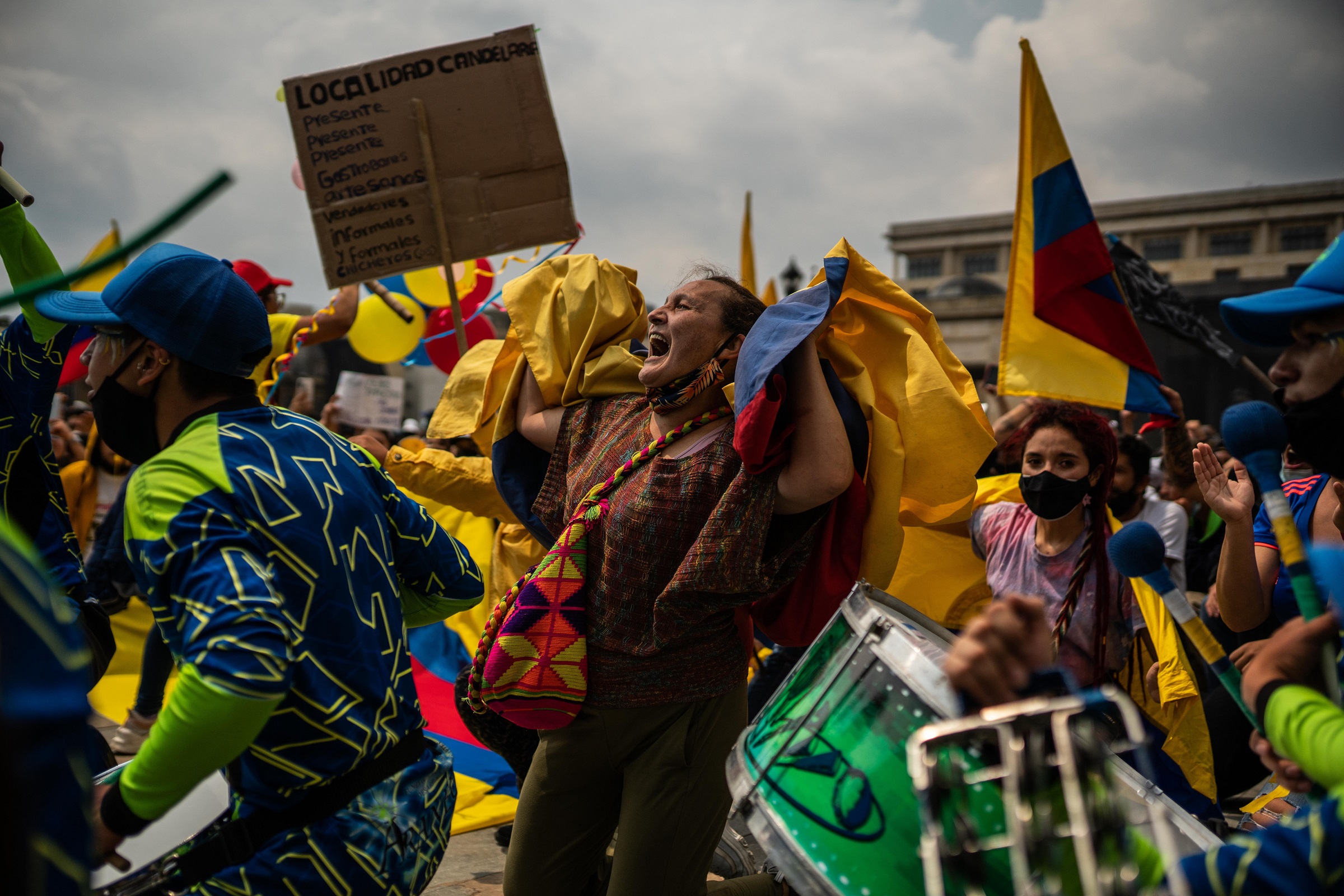
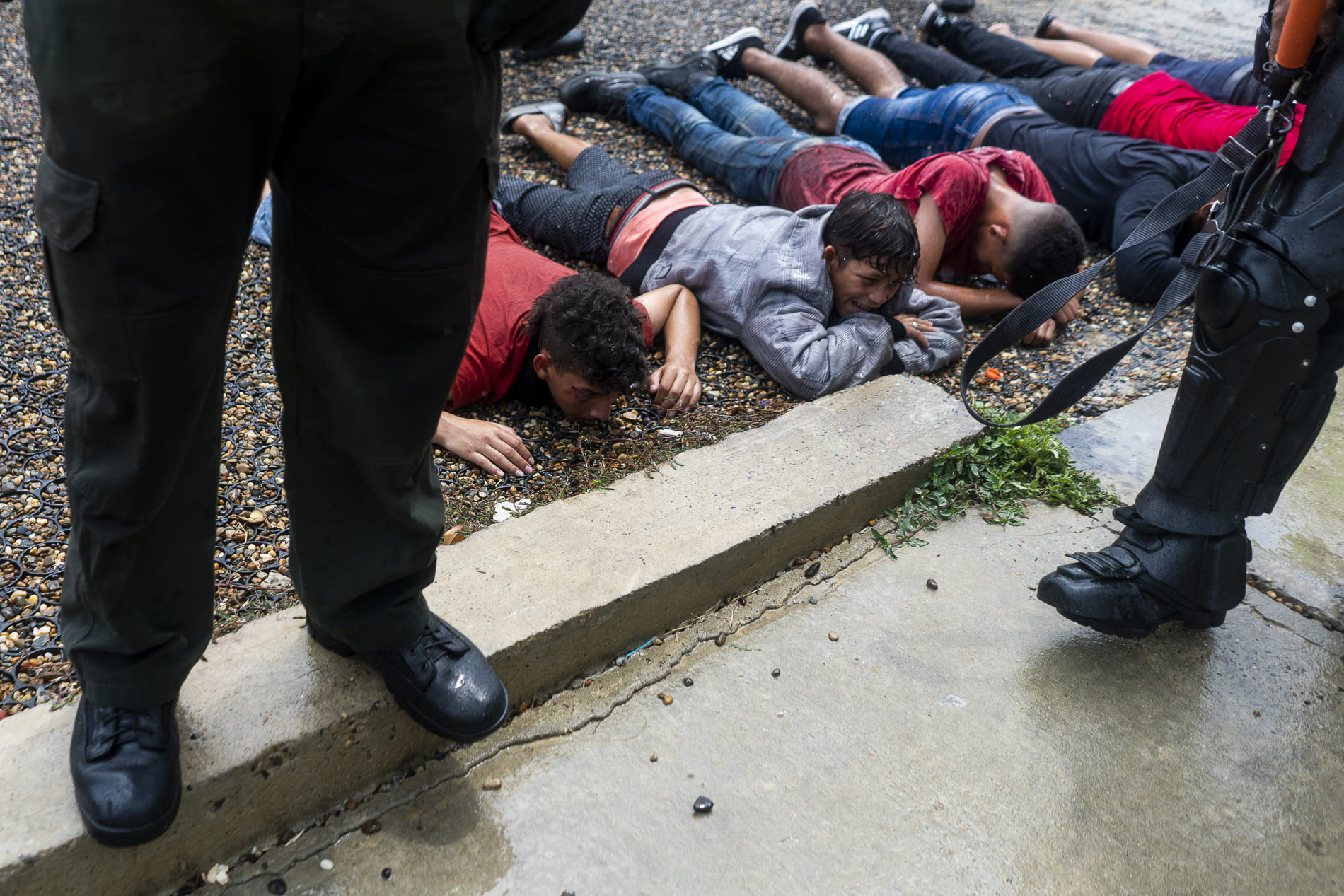
At this moment, according to data from human rights organizations, there are approximately 1.143 acts of police violence. Among them 31 homicides by the police, 10 victims of sexual violence, 814 arbitrary detentions and 89 disappearances.
People want to continue this strike. Many thought that if the reform was withdrawn, people would stop going to the streets. Our idea is to have a good record, it is an important moment that could possibly generate great changes in the country and as a collective we want to be there, in the front line with the protesters, with those who protest peacefully and trying to document all these human rights violations that are occurring.
Above all, we are a support group. We are pending, for example, to constantly monitor: Who is where? Every so often we ask ourselves how we are doing, we share our locations and every time someone is not in the field, that person is monitoring the others. So we come out a little safer. I think that the collective exercise is: to support each other, to join in and in situations as complicated as these, where even the press is not being respected in the street, to accompany ourselves.
At this moment, according to data from human rights organizations, there are approximately 1.143 acts of police violence. Among them 31 homicides by the police, 10 victims of sexual violence, 814 arbitrary detentions and 89 disappearances.
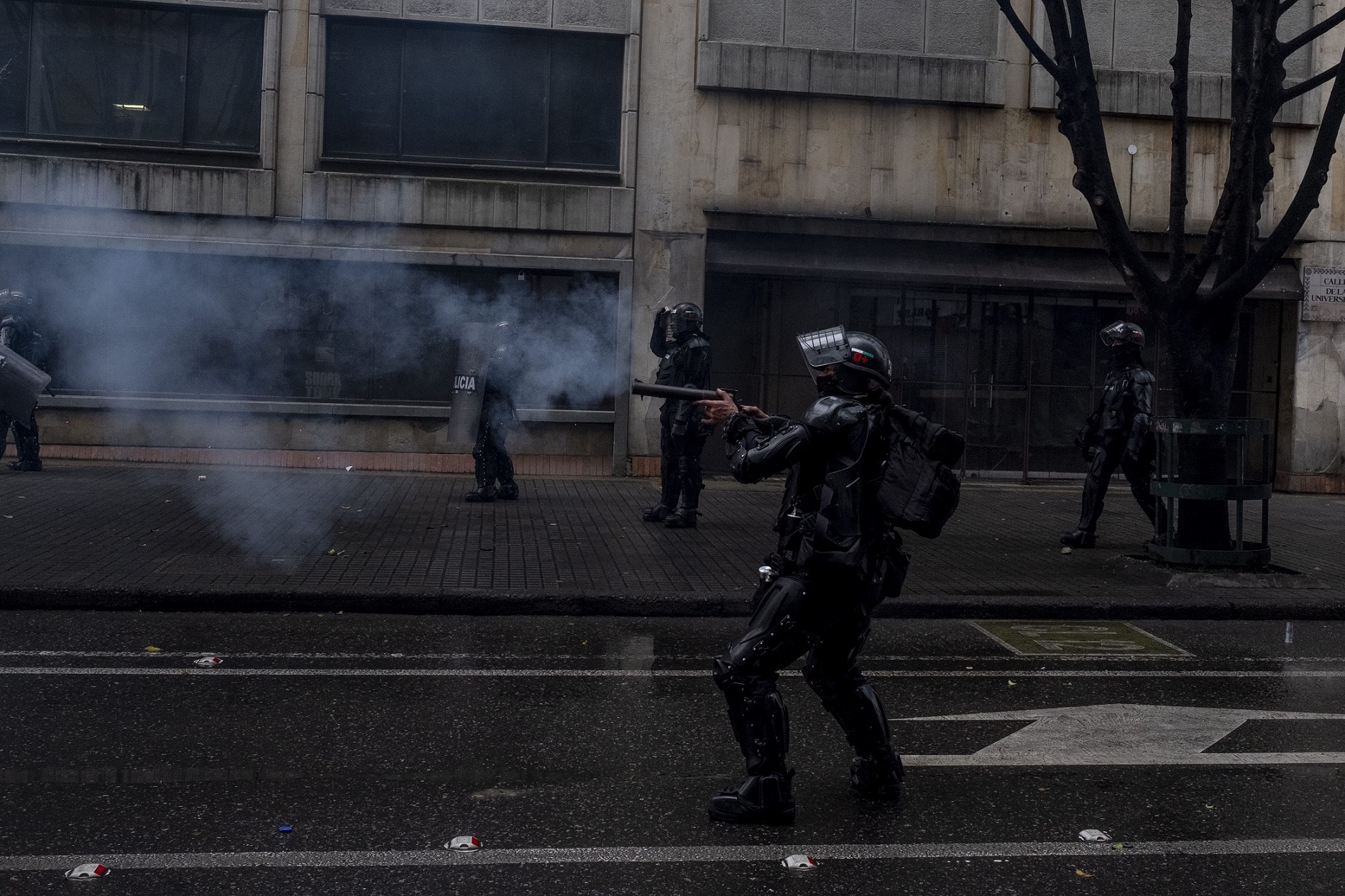
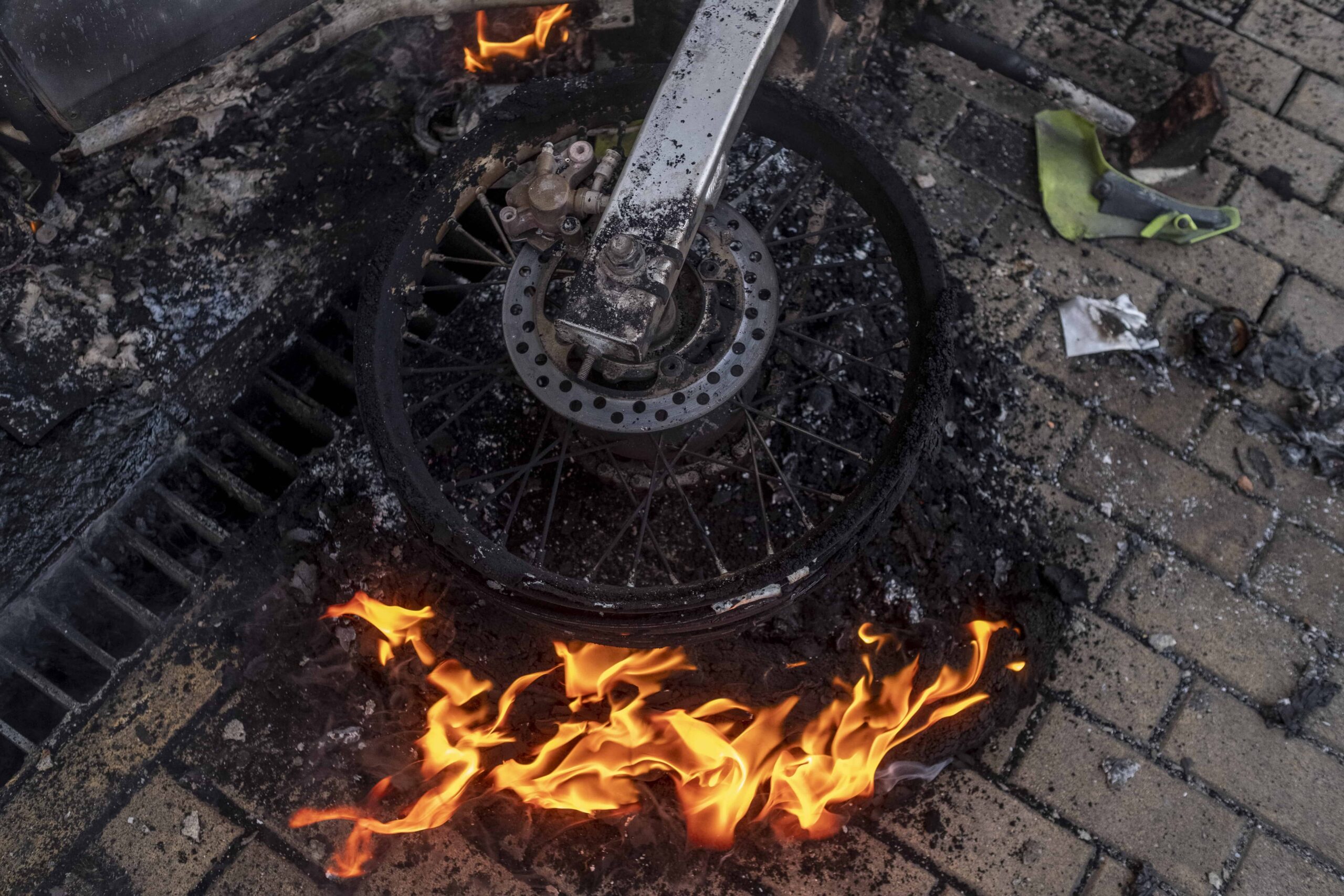
The images of these last days are very similar to those we saw when the outbreak began in Chile. In fact, a kind of comparison is being made in relation to how an outbreak is generated in a short time from a political decision. Given these figures that you were just commenting on, Andrés, on the police violence that is taking place, how are you organizing journalistic coverage beyond the Reojo collective? Are there alliances with journalistic media or are you setting up a network?
Paula: 2019 was a super euphoric moment in Latin American history, because it also began to happen in Argentina, Ecuador, Bolivia. In our country, although the student movement has been championing social protest in the streets for a long time, it is a very novel issue. So up to now we are like training ourselves, in that aspect and organizing ourselves. What Andrés mentioned about the community seems important to me, not only among us, in our collective, but also in what is happening on the front line. As photographers generally we work very individually, but at this moment the public force is violating both civilians and the press, and human rights organizations are not even being respected. The collectivity and the accompaniment in the first line is key. And this is how it has also been organized from the media.
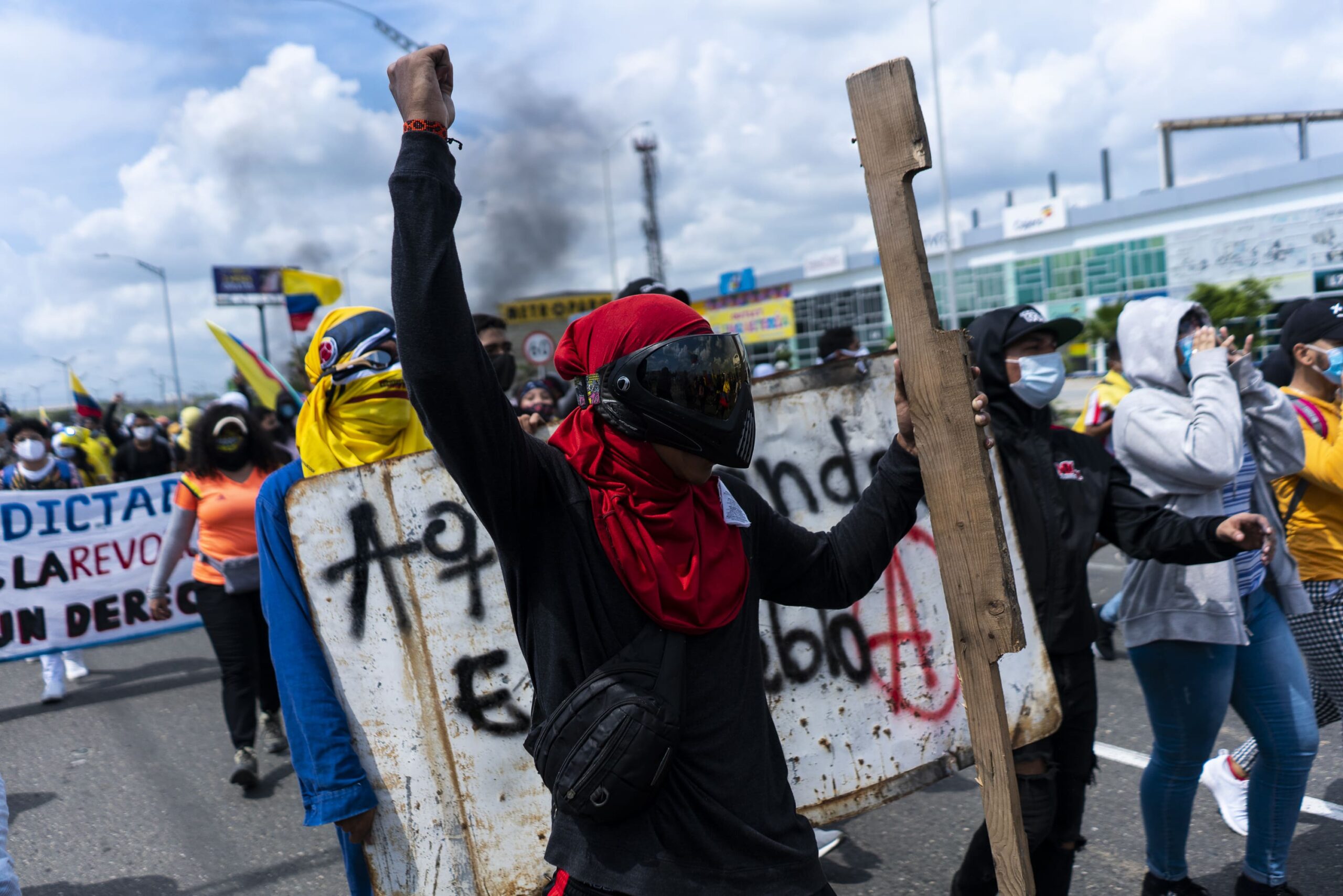
Andrés: One of the important things is that here in Colombia there is a group, an international press association. And this group has been very aware of all the people who collaborate for international media. Because it must also be said is that we are all freelancers. And being freelance, it is more complex to interact with the media if it is not through publishers and we are also in the fight.
Because of course, the media have agency photographs on hand. We are trying to find a story, trying to make a difference, perhaps using tools that we have made with other projects from the personal and collective to be able to document what is happening.
Since this started, we have been taking pictures and looking forward to what’s next from now on. Because this looks like it is going to be a bit long, it is not a protest of a couple of days. We are concerned with having a record, with documenting history. From then on, we will use tools such as our social networks, but we will also send the media with which each one has contacts to move the material as much as possible.
Paula: yes, beyond the publication, there is this historical record that is so important to us and this complaint through our platforms.
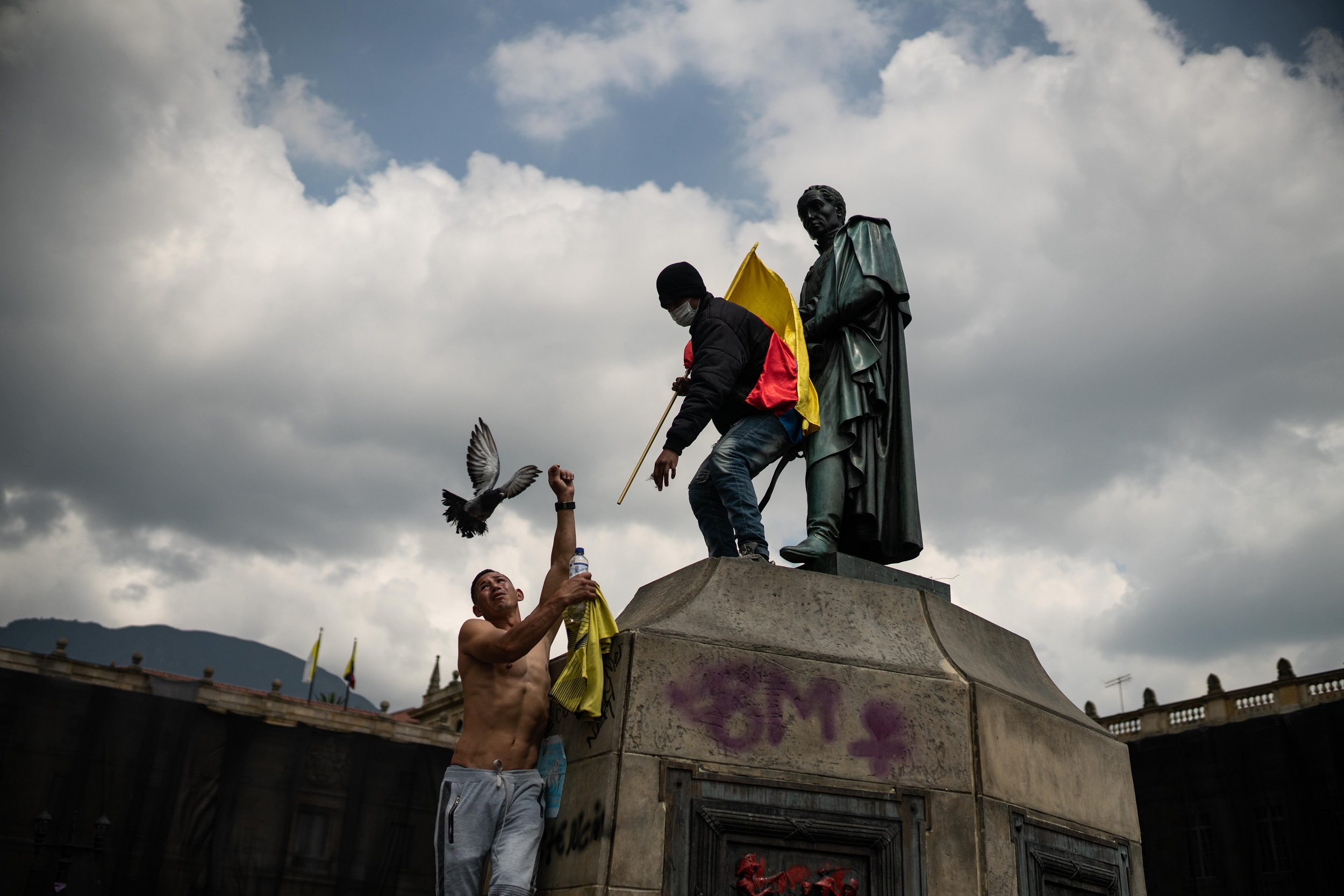
What are the aspects that are drawing your attention?
Andrés: Colombia is the first country in the world in assassinations of environmental leaders. We also have countless social leaders assassinated. That means that one of the things that happens in this social outbreak has to do with the excessive use of the police force. How are the police using the army that is taking to the streets? How is it being used against the civilian population? That is important to us. Militarization is one of the last resources in a democracy and that can leave in suspense everything that we have tried to build, the little country that we have tried to build. That is something worth documenting.
We are interested in youth. I think that young university students are the ones who have moved this protest. They and the indigenous Minga, the indigenous communities that come together to come to Bogotá, travel hundreds of kilometers and protest. That seems important to us.
